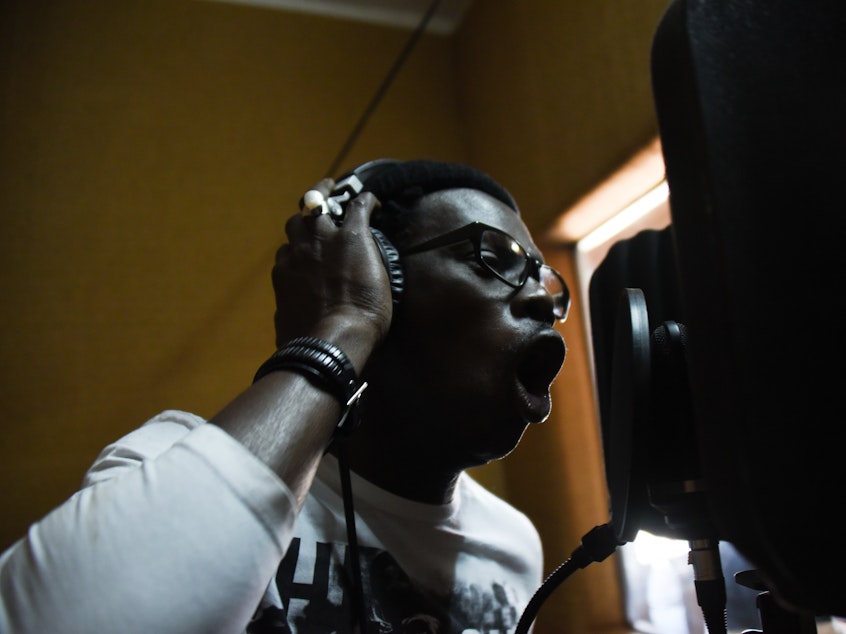How Senegal's artists are changing the system with a mic and spray paint

Babacar Niang, known as Matador, raps at a recording studio at one of Africulturban's facilities in Pikine, Senegal on April 26, 2018.
Ricci Shryock for NPR
In 2005, heavy rains flooded neighborhoods around Dakar, Senegal, forcing tens of thousands of people out of their homes.
It was the worst downpour in decades and Babacar Niang, a rapper also known as Matador, witnessed the devastation.
"People's faces read worry first, then fear," reads one line from his song, "Catastrophe."
But he couldn't just sit there and write songs about it, he wanted to do more.
In 2006, he founded Africulturban, a cultural center where young people go to create music and art.
The center feeds into a large and lively hip-hop scene that is often socially conscious.
Listen to our full report by clicking or tapping the play button above. [Copyright 2022 NPR]



